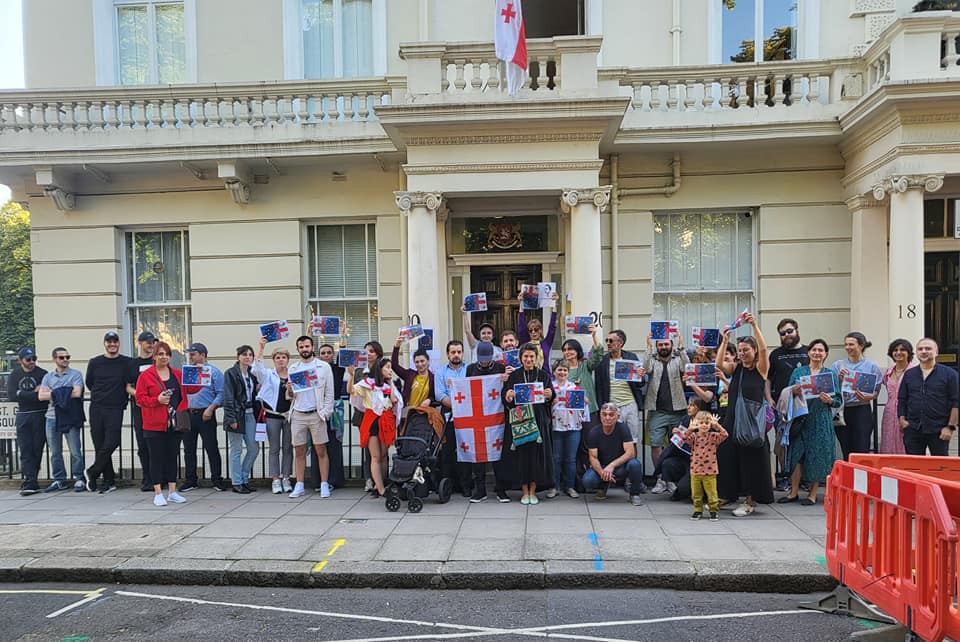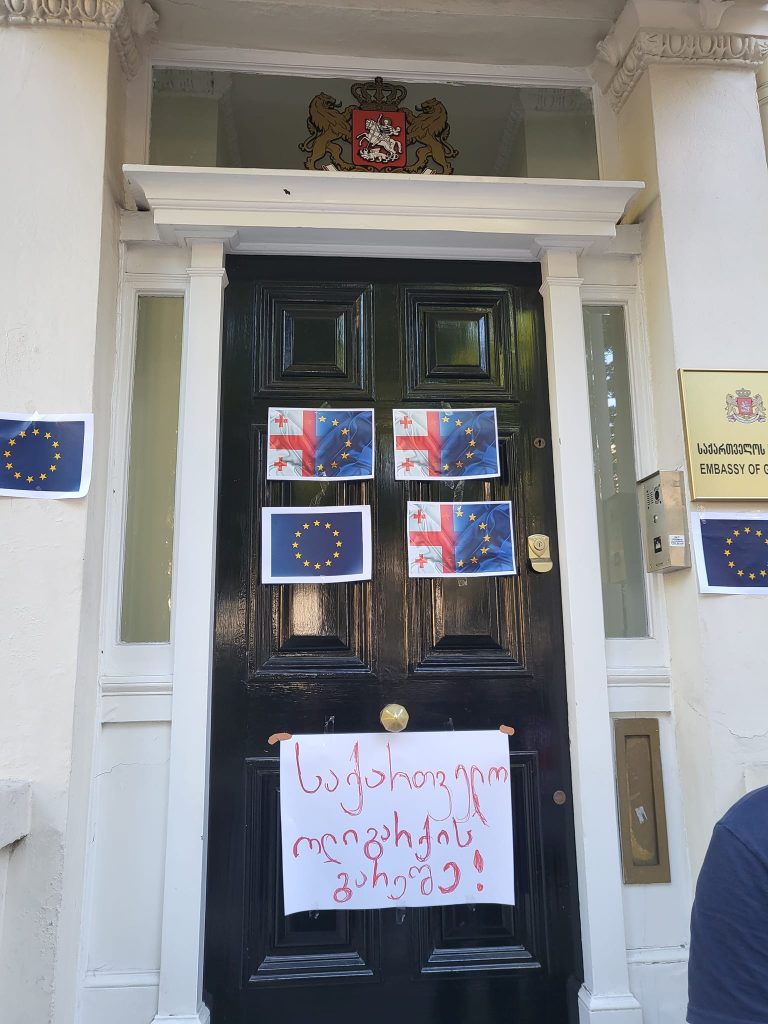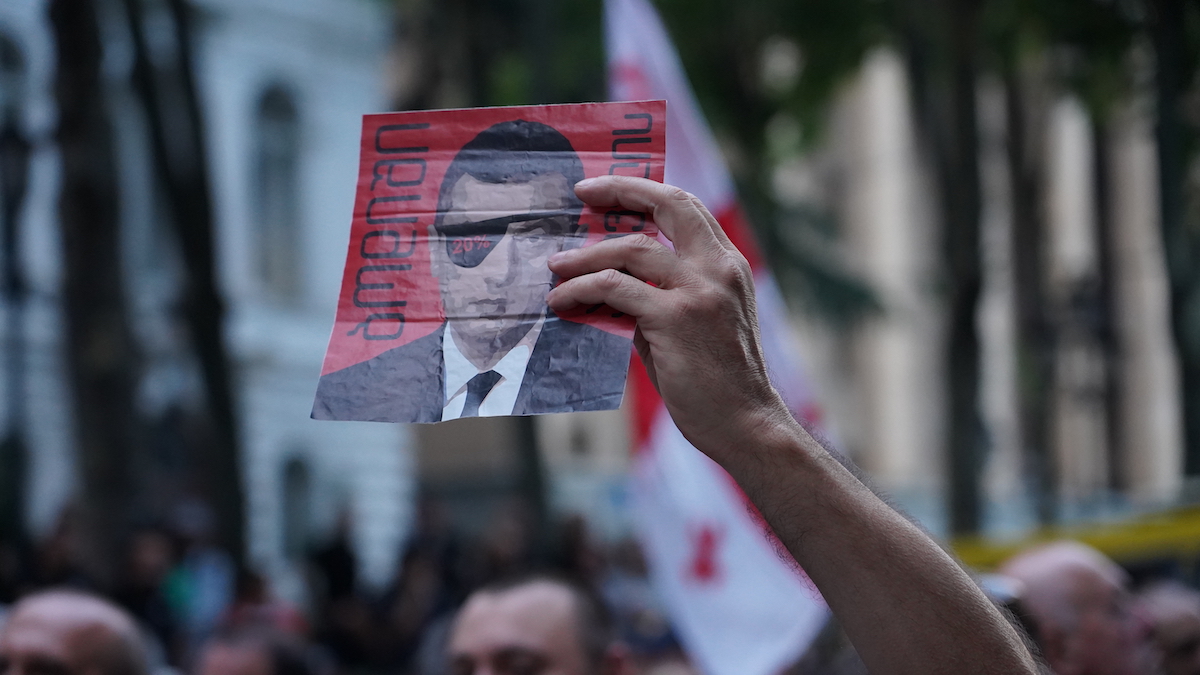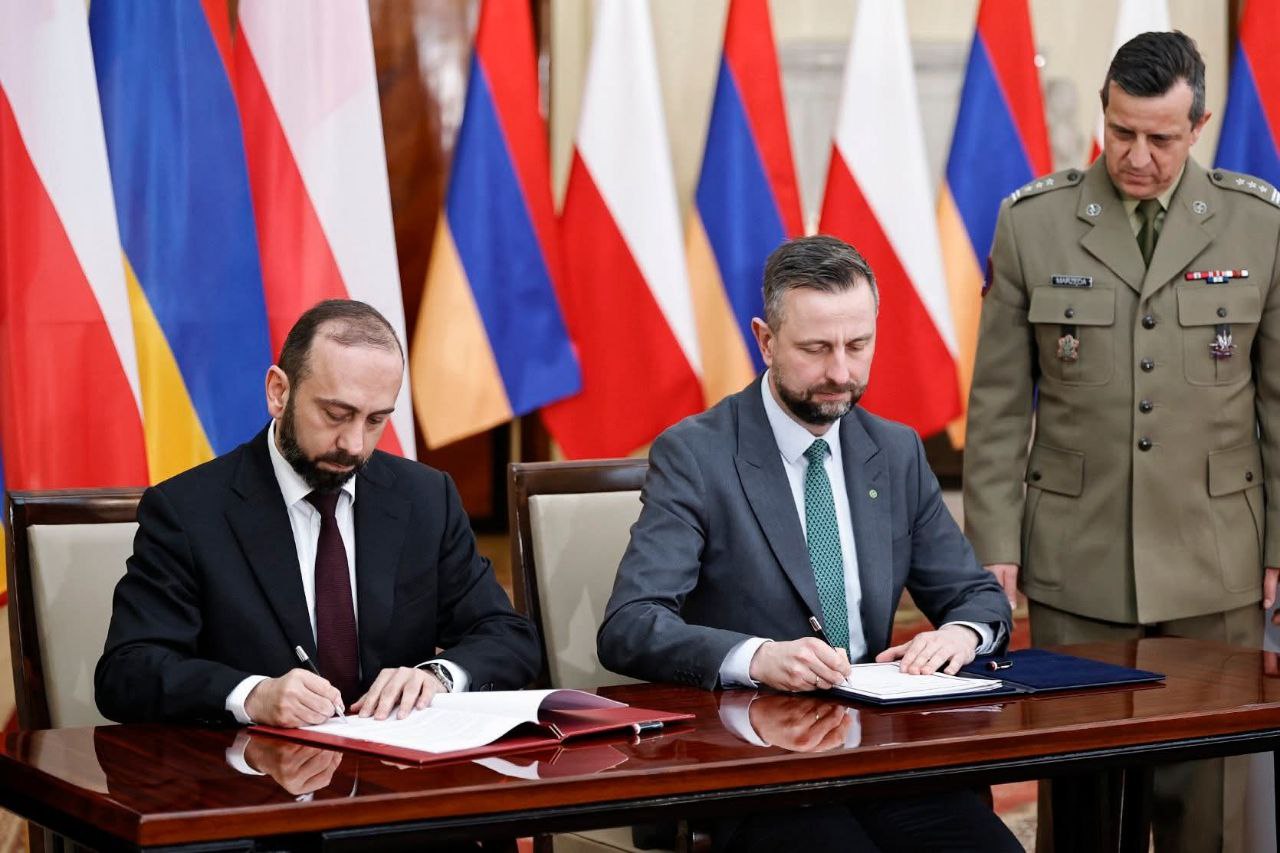"Home, to Europe" - one of Georgia's most crowded rallies in recent years. Photo/video
Rally in support of Georgia’s European course
On June 20, one of Georgia’s largest rally in recent years in support of Georgia’s European course was held in front of the parliament building in Tbilisi.
Thousands of people gathered at the rally to demonstrate the loyalty of the Georgian people to Europe and European values.
This action preceded an important decision for Georgia, which the European Union should take on June 24. On this day, it will be decided whether Georgia will receive the EU candidate status.
● Journalists and citizens who have been attending and covering rallies in Tbilisi for years say they have never seen so many people on Rustaveli Avenue. At least 120,000 people attended the rally, according to the independent website Netgazeti. The maximum estimate is 160,000 people.
● The slogan of the rally was “Home, to Europe”, and its goal was to support the European course of the country. On June 24, Georgia is awaiting an important decision by the European Union on granting candidate status. The preliminary answer is known – Georgia’s chances are slim. The European Commission recommended granting status to Ukraine and Moldova, but not to Georgia. Georgia is likely to be given a long list of conditions that must be met before it can obtain the candidate status. Society believes that such a recommendation by the European Commission was provoked by the anti-Western rhetoric of the government and its position regarding the war in Ukraine. President Zurabishvili also blames Georgian government.
● The rally was not organized by any political party. Politicians did not speak at the rally, although the rally was attended by the leaders of almost all pro-Western political parties.
● The rally was organized by the Shame movement. This movement was created exactly three years ago, on June 20, 2019, after the so-called Gavrilov Night, when the Georgian authorities violently dispersed peaceful demonstrators. The average age of the participants in this movement is 25-30 years. They are critical of the government even though they are not members of any political party. In 2019, the Shame movement held permanent actions for almost the entire year. In the end, this protest (as well as the activity of the opposition and European partners) forced the government to adopt a proportional system of parliamentary elections.
● The “Manifesto of the Georgian people” was announced at the rally, which, according to the organizers of the rally, means the beginning of a new stage in the life of the country and a new struggle.
━ A new large-scale rally will be held in Tbilisi on June 24, after the European Union announces a final decision on the status of Georgia.
━ A new public movement “Home, to Europe” will be created;
━ A National Council will be created to become the governing body of the new movement. The council will include civil activists, journalists, politicians, students, representatives of non-governmental organizations, cultural and trade union organizations.
━ Groups within the council will develop agreed requirements that will be presented to the government for implementation.
━ If these requirements are not met, the new popular movement will begin a series of indefinite protests throughout the country:
“All districts and cities of Georgia will stand up and a wave of non-violent resistance will disperse all those who block our country on the way to Europe”.
● At 20:00, one of the most crowded rallies of recent times began to the anthems of Georgia, Ukraine and the European Union.
● Students joined the action. Yesterday’s rally was the first protest in recent years, which was attended by students from various public and private universities.
“I’m Georgian, so I’m European”, former Georgian Prime Minister Zurab Zhvania chanted as students marched from the Philharmonic to the parliament building.
● Among the speakers at the rally were representatives of the Ukrainian authorities and the European Union. Lithuanian MEPs Rasa Yuknevichen and Andrius Kubilius, Czech Marketa Gregorova and Polish Anna Fotiga addressed the Georgian protesters with a video message.
● Most of the banners carried by protesters depicted Bidzina Ivanishvili with the captions “Deoligarchization”, “Forward”:
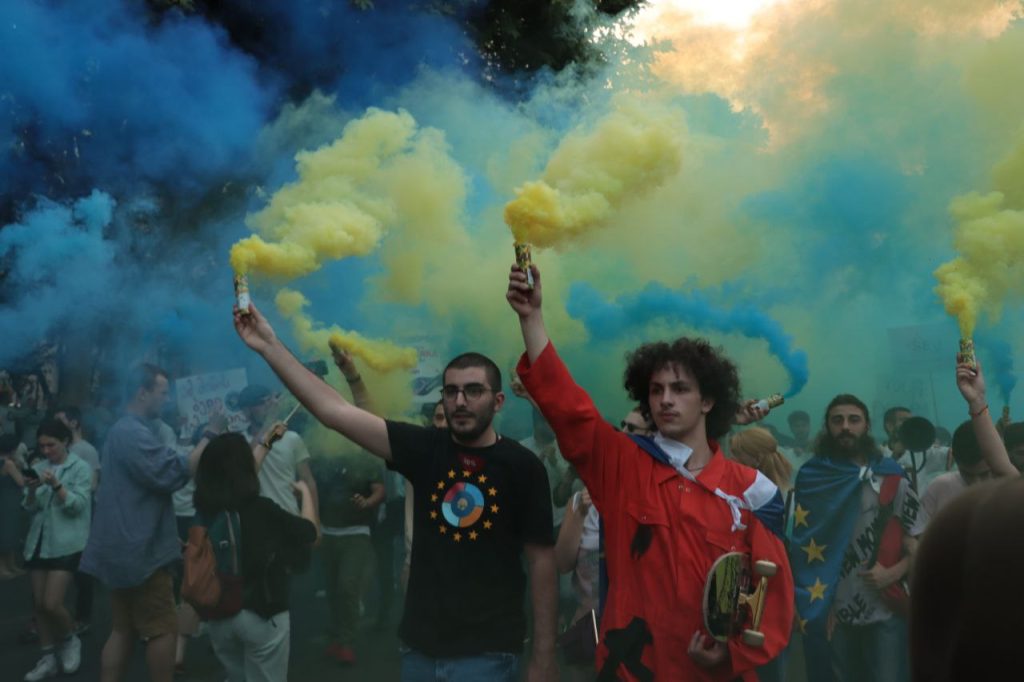
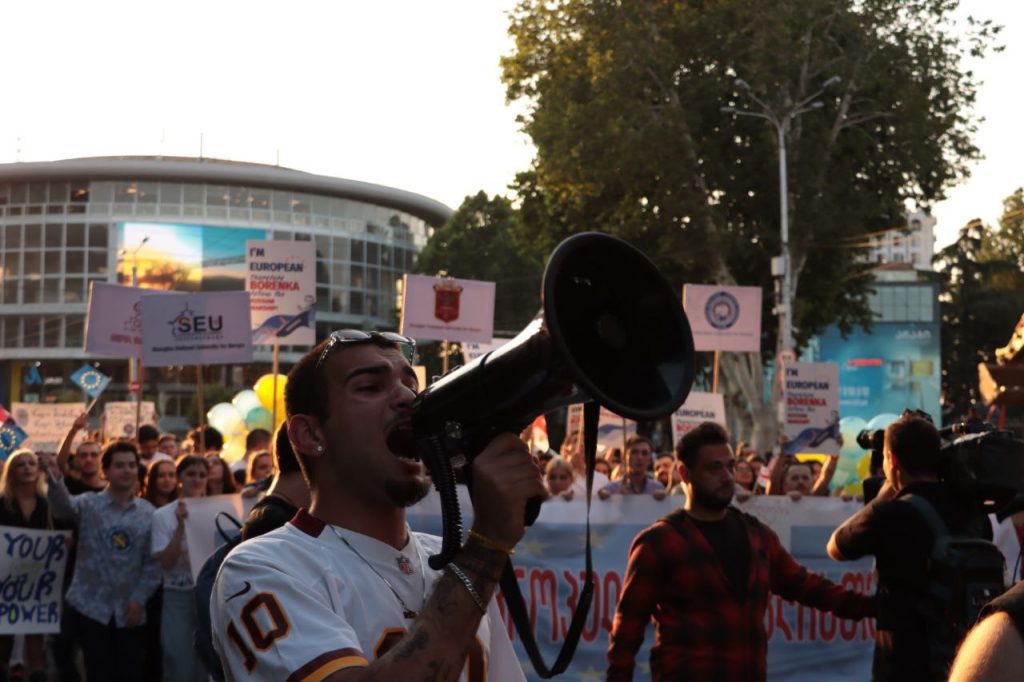
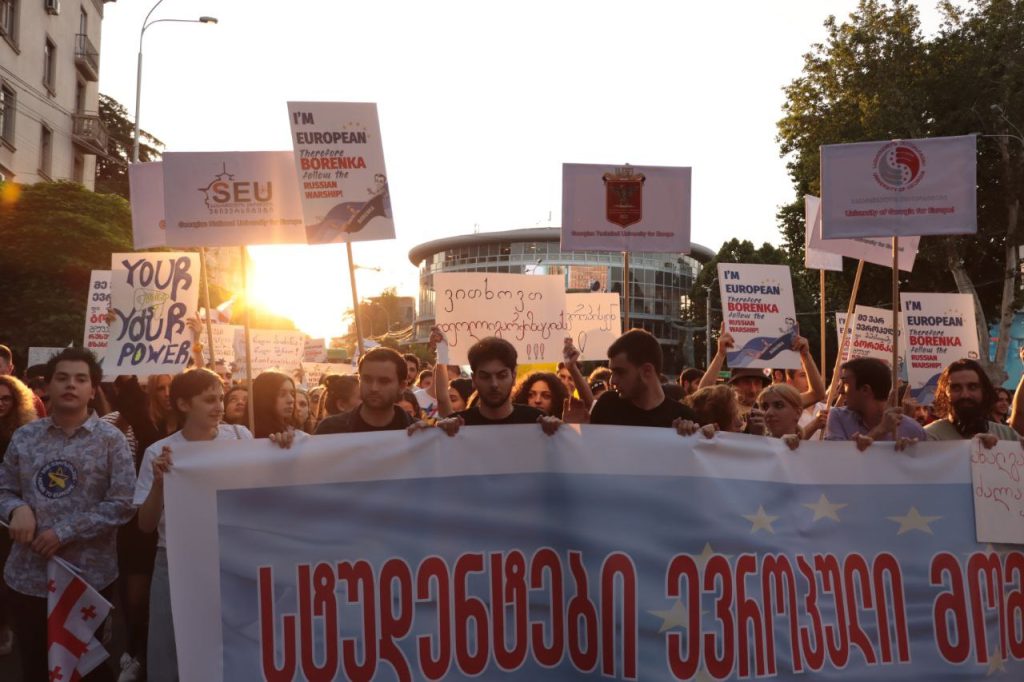
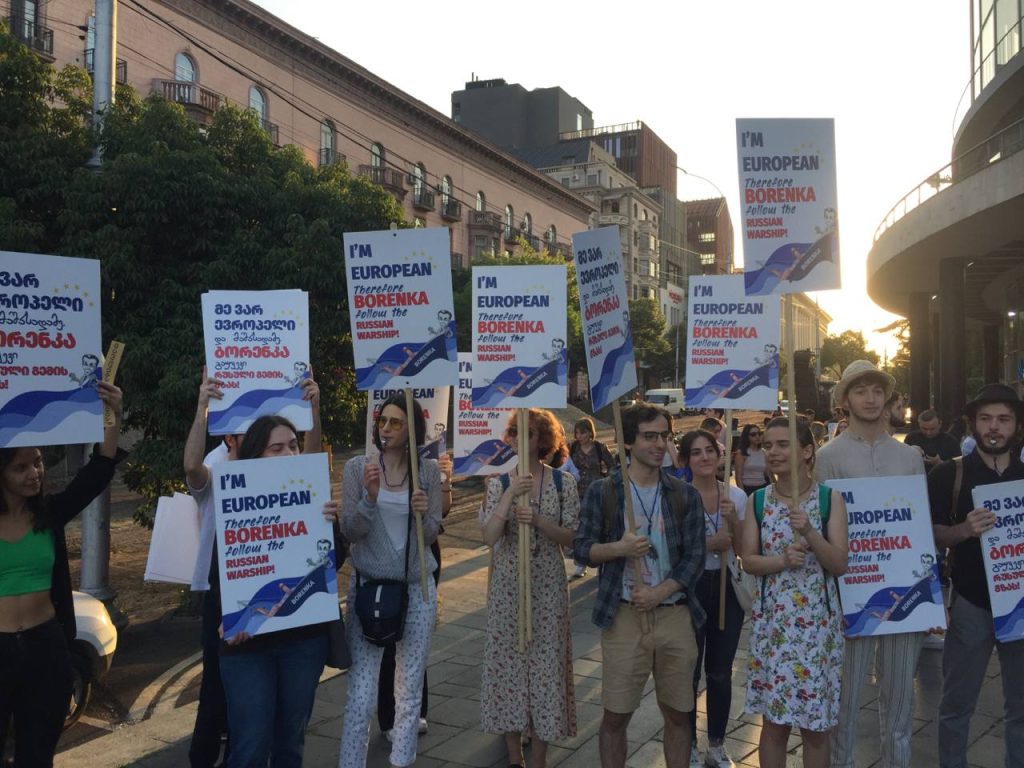
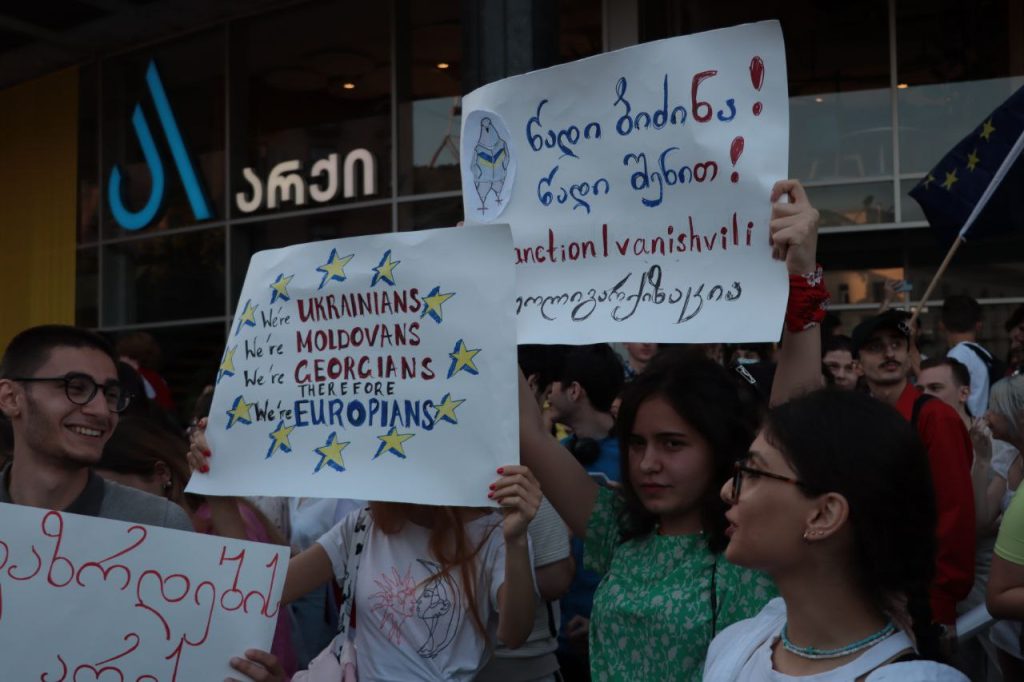
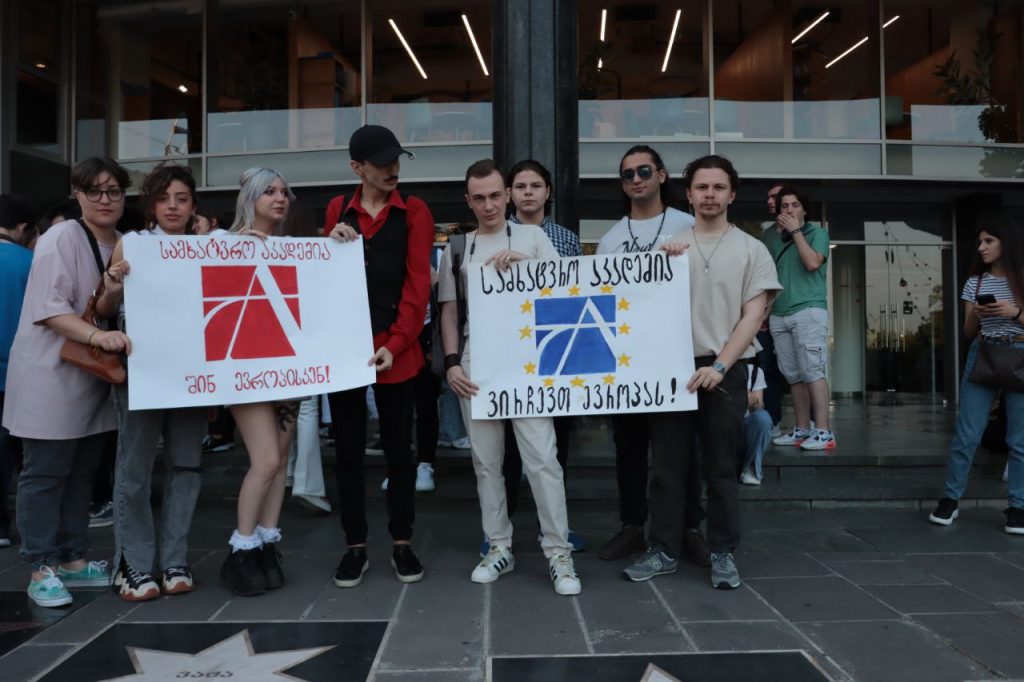
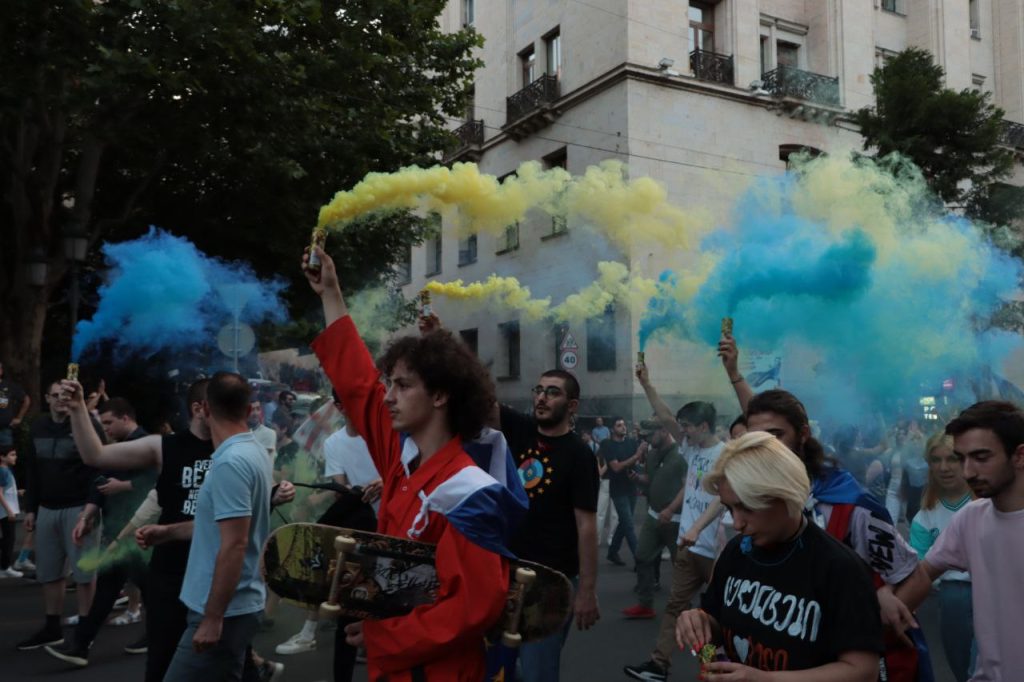
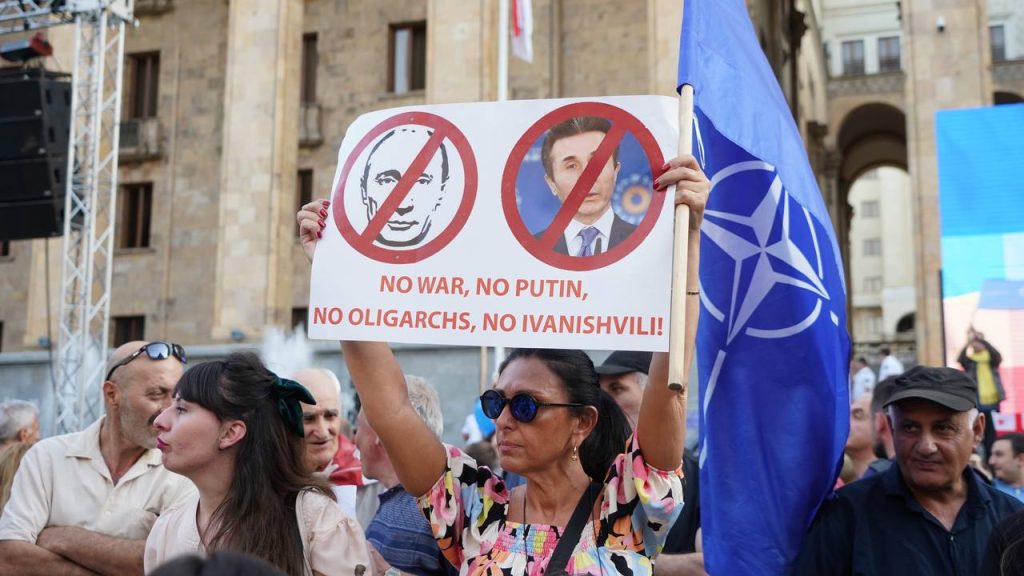
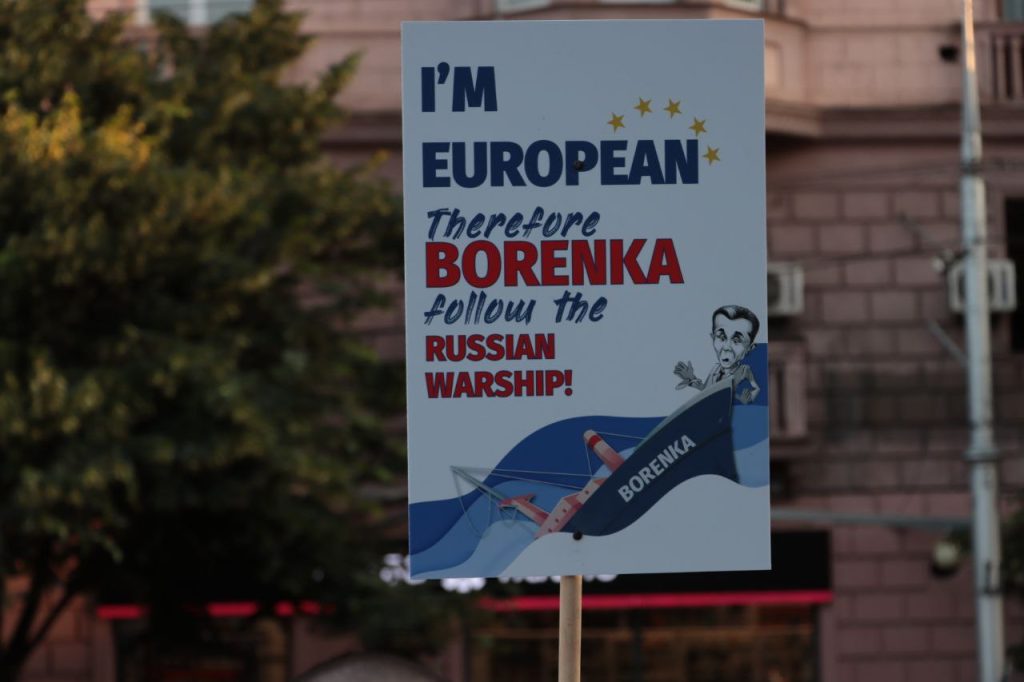
● Citizens demanded free courts and media:
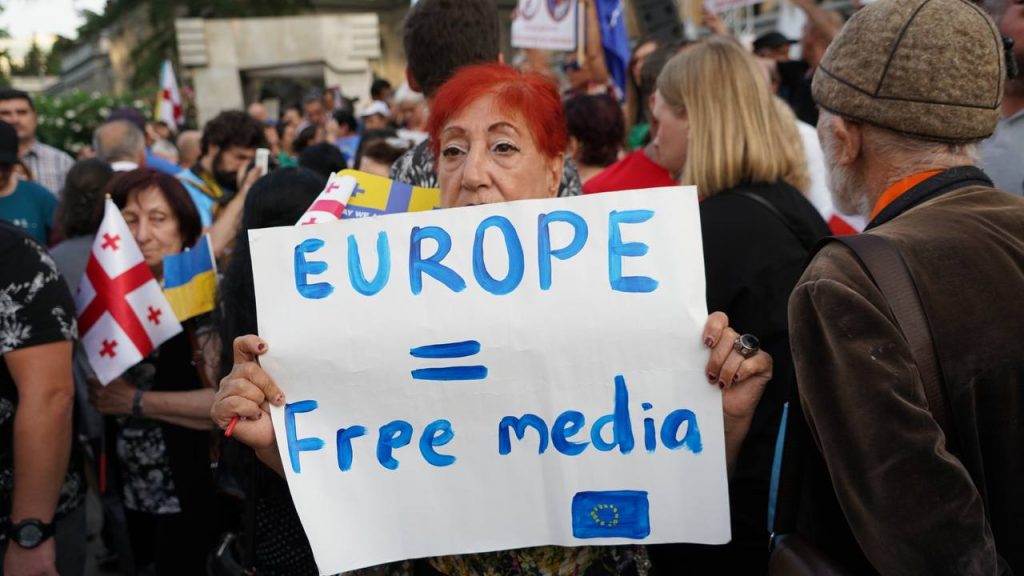
● There were also calls to release Georgia’s third president, Mikheil Saakashvili, and Nika Gvaramia, director general of the opposition Mtavari TV channel. Gvaramia was arrested in May and influential human rights organizations, such as Amnesty International, called his case politically motivated.
● Along with the flags of Georgia and the European Union, there were many Ukrainian flags and slogans in support of Ukraine:
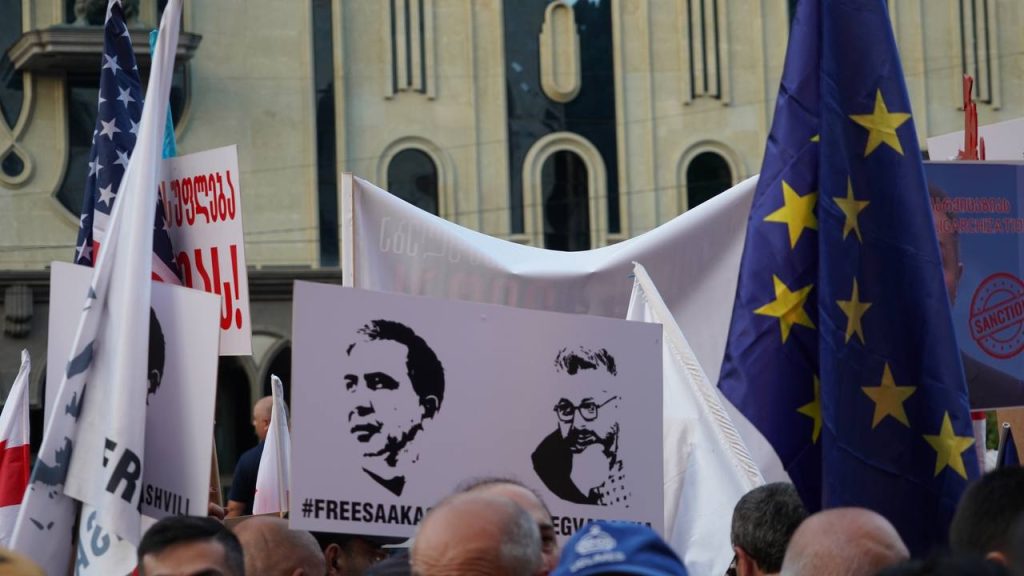
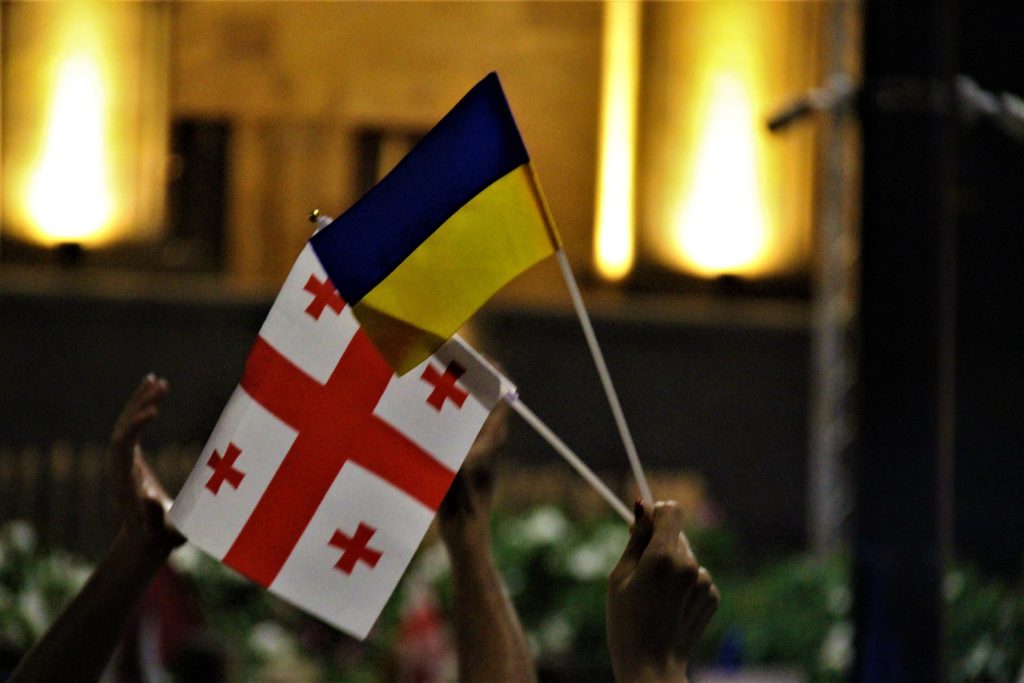
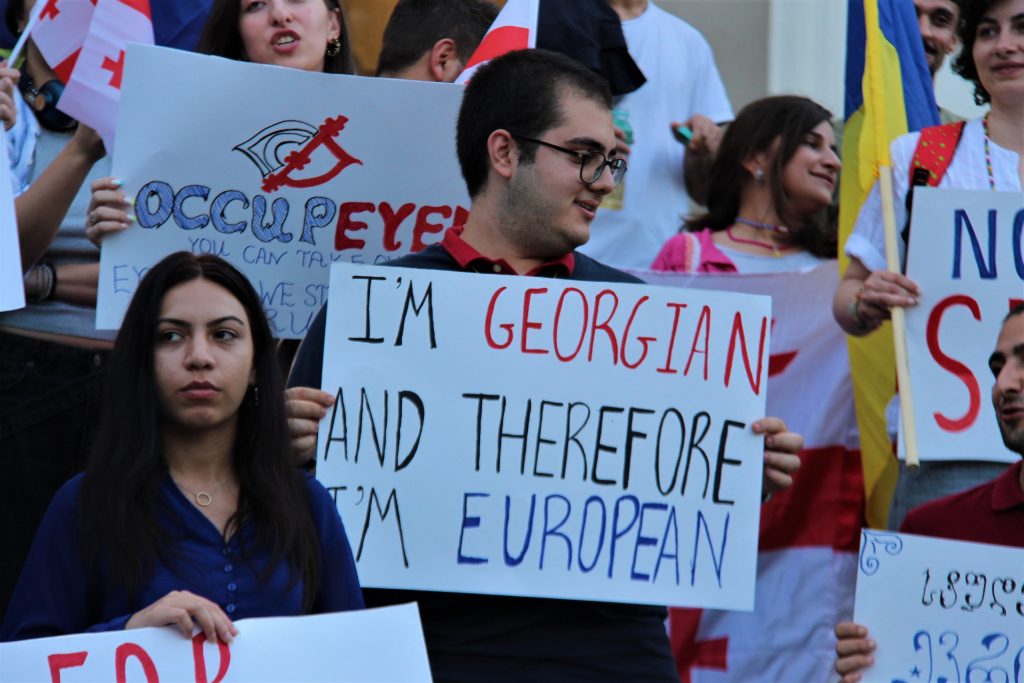
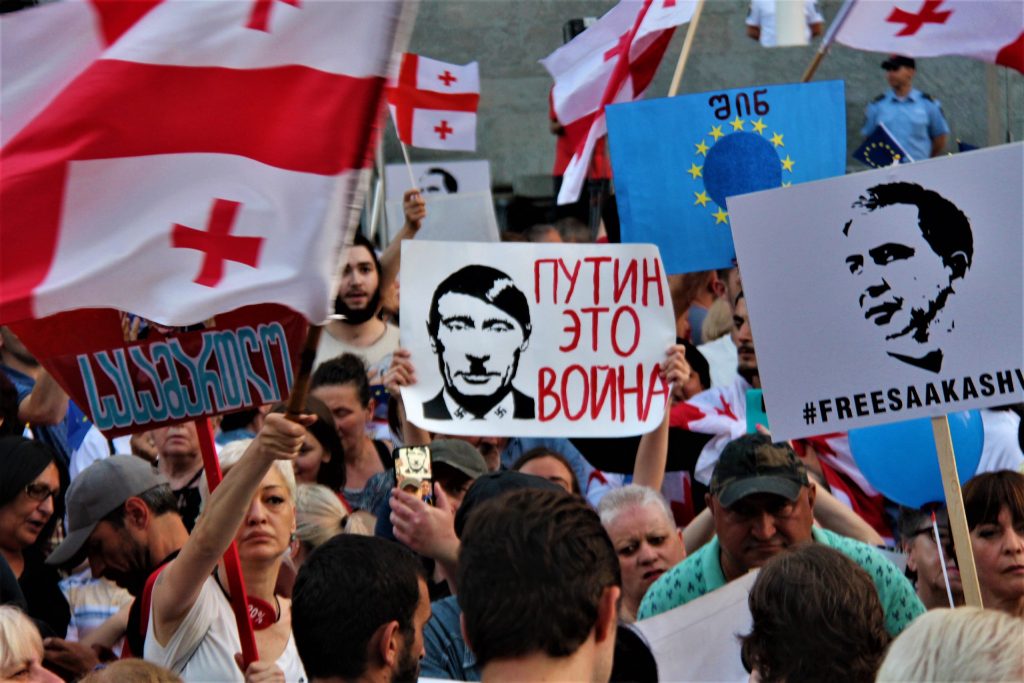
● Journalists emphasized that people of different ages gathered at the rally:
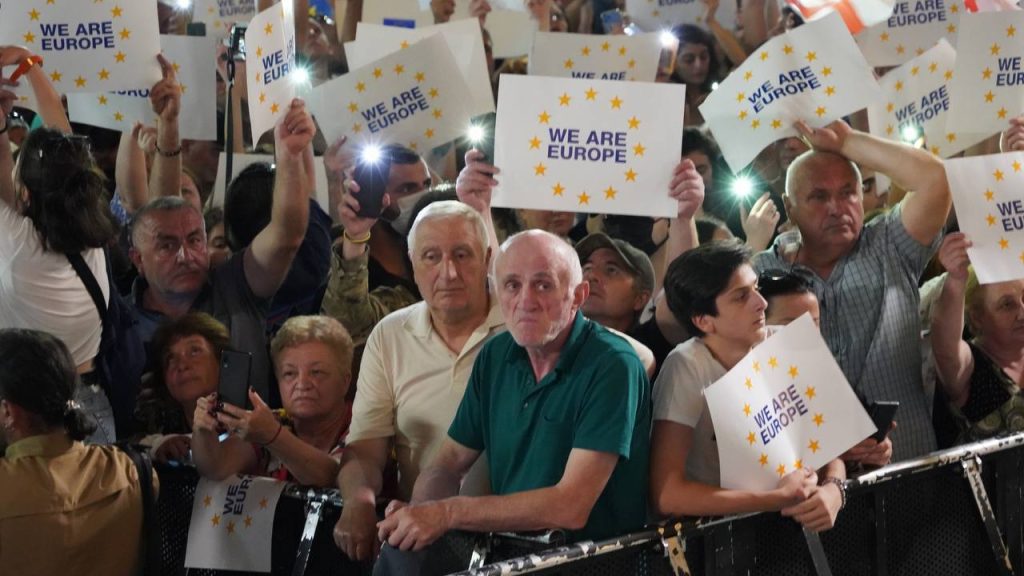
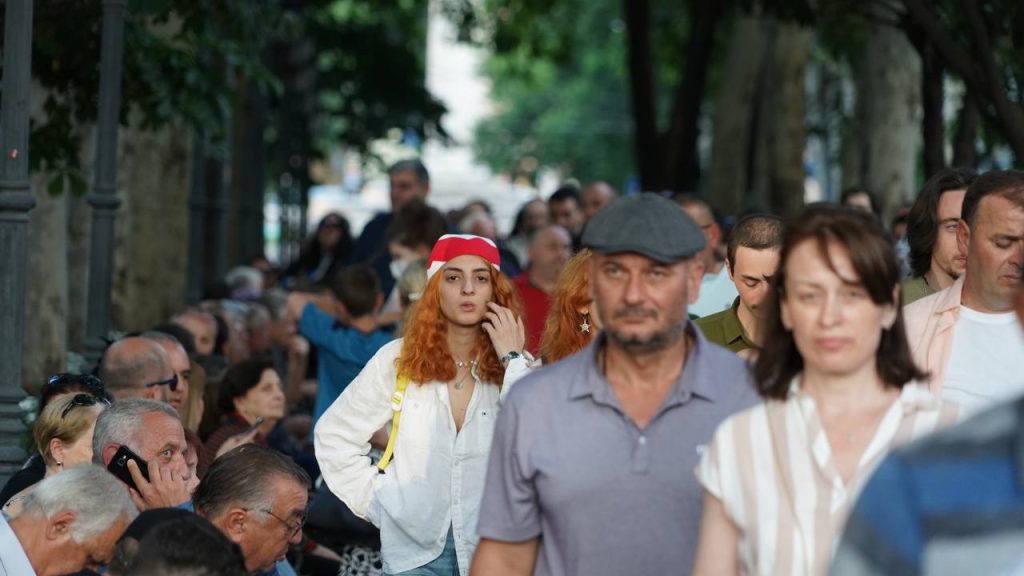
● In the evening, shortly before the rally, almost the entire city was paralyzed – Tbilisi residents complained on Facebook that they were being stuck in big traffic jams. Photos were circulated from the metro, where there was also a large crowd of people.
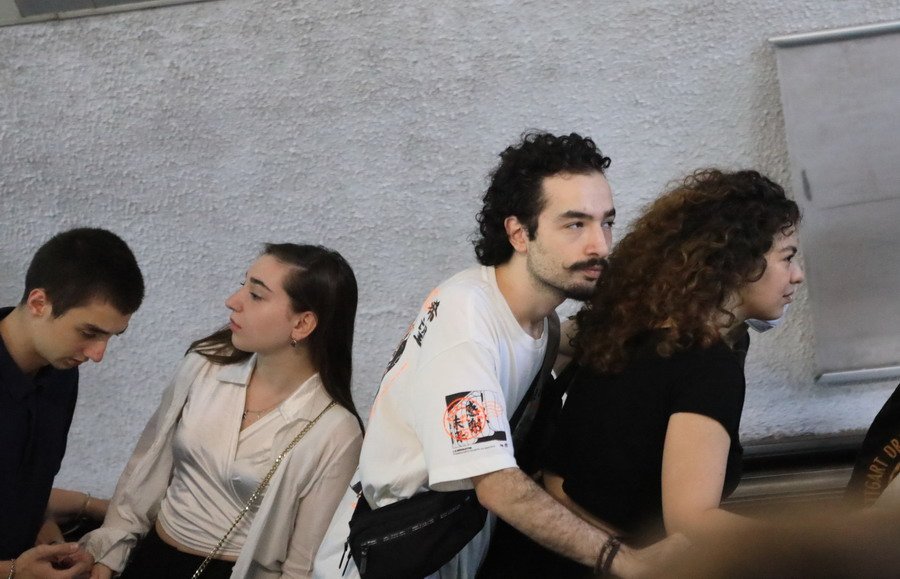
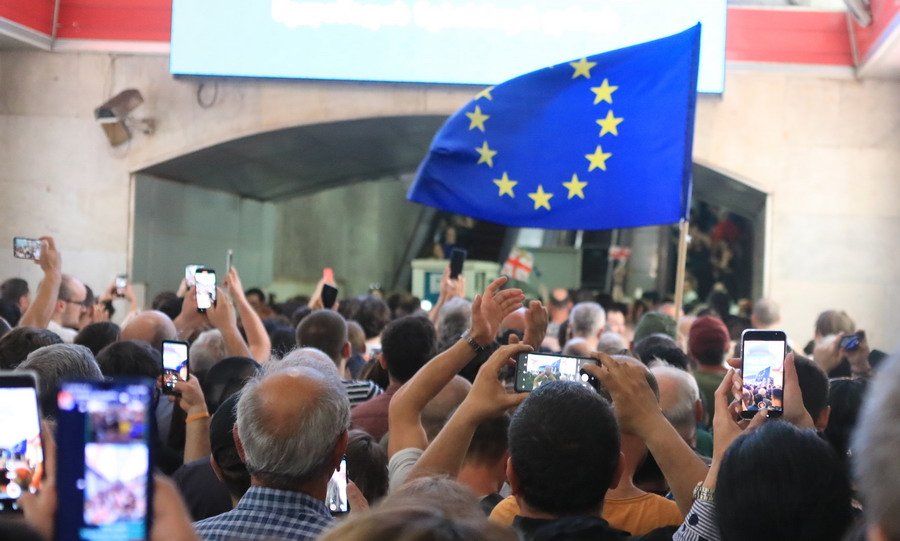
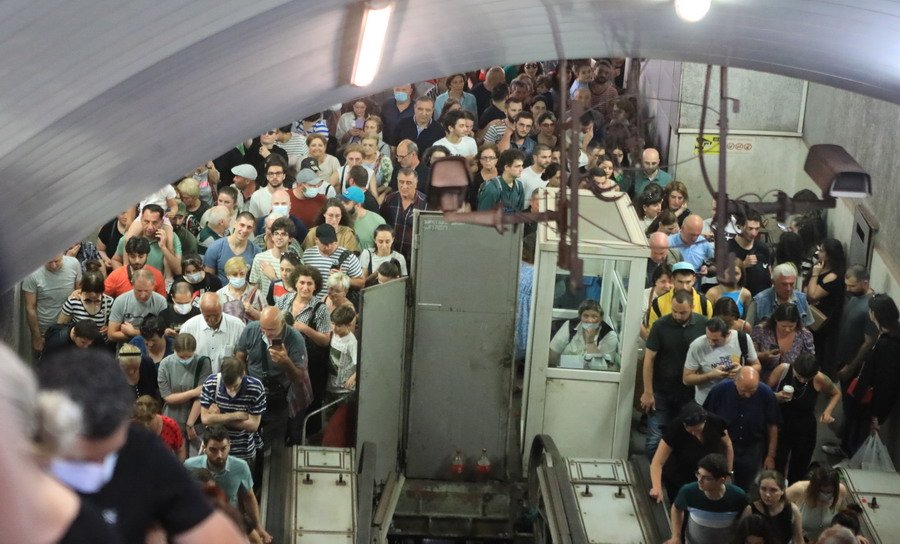
● Rallies under the slogan “Home to Europe” were also held in other cities of Georgia – Batumi, Zugdidi, Kutaisi, Ozurgeti.
Action in Batumi:
The emigrants also supported those gathered on Rustaveli Avenue. They gathered in the capitals of various European countries, near the Georgian embassies, carried flags and banners.
Prague:
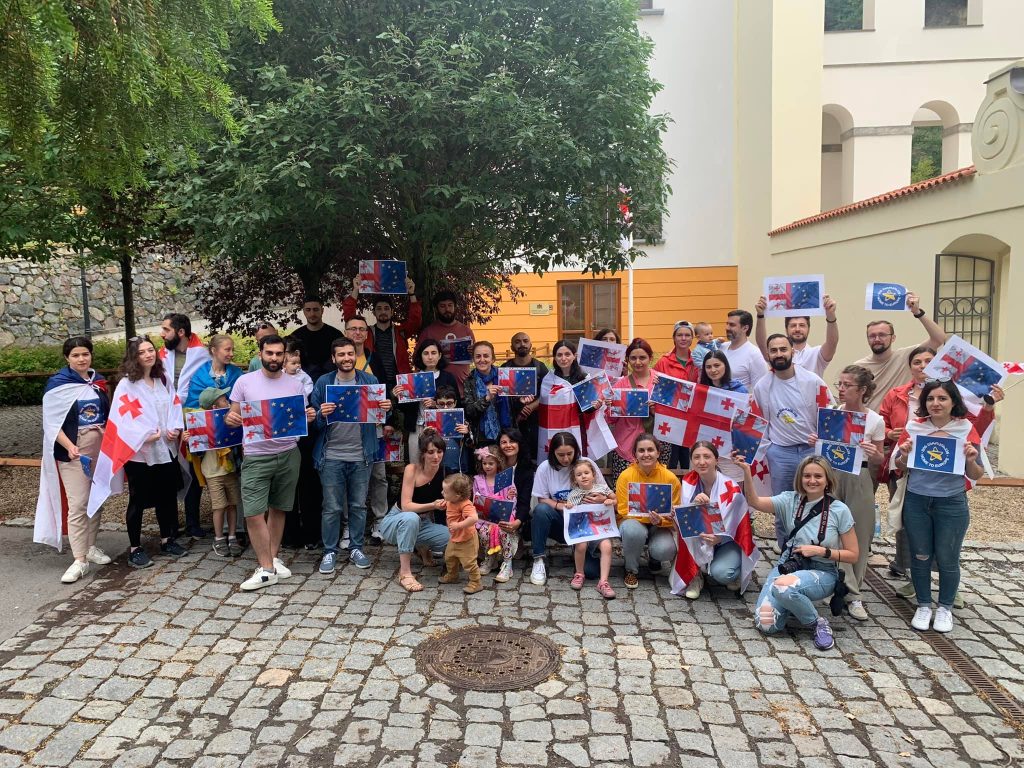
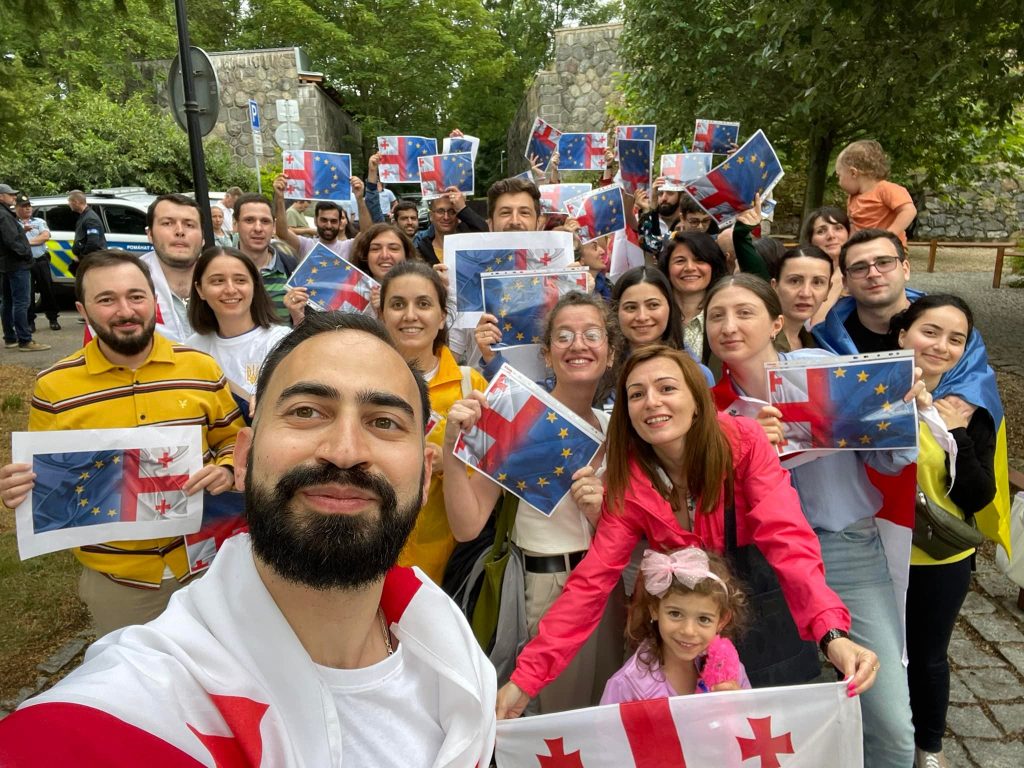
London:
